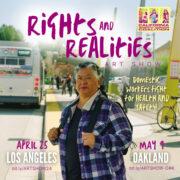WHEN a legal permanent resident files for citizenship, one of the questions being asked of the applicant is whether the applicant has ever been convicted or charged with a crime. Depending on the nature of the crime committed, a criminal conviction may result in a permanent bar to an applicant for citizenship.
If an applicant has committed the crime of murder or an aggravated felony, the applicant will never be granted US citizenship. An aggravated felony may include the following crimes: rape; sexual abuse of a minor; drug trafficking; firearm trafficking; child pornography; laundering of monetary instruments where the amount exceeds $10,000. Aside from having the citizenship application denied, the applicant will most likely be put in removal proceedings once the US Citizenship and Immigration Services (USCIS) finds out that the applicant has been convicted of one of these crimes.
There are some criminal convictions that may temporarily bar applicants from obtaining US citizenship. This means that if an applicant has been convicted of a crime, the applicant would have to wait for a certain period of time within which to apply for citizenship. In some cases, the applicant would have to wait for five years from the commission of the crime to apply for citizenship. Some of these crimes that will temporarily bar an applicant for citizenship are as follows: (1) participation in illegal vice activities such as prostitution; (2) conviction or admission of a crime involving moral turpitude; (3) spending 180 days or more in jail or prison for any crime; (4) conviction of two or more crimes, the combination of which the applicant got a total prison sentence of five years or more. These crimes would prevent an applicant from showing good moral character during the required period of time.
However, there are some crimes which would temporarily bar an applicant from obtaining US citizenship if the applicant is still undergoing probation. An example would be a conviction for driving under the influence (DUI). An applicant with a DUI conviction will have his or her application denied if the probation is still ongoing. The probation period for a DUI conviction is usually for three years. Applicants with DUI convictions may have the option of having their probation terminated earlier thus making them eligible to apply for citizenship.
If an applicant has been convicted of a crime, it is best that the applicant seek legal advice from an attorney to determine eligibility in filing for citizenship and more importantly the consequences of the criminal conviction on the applicant’s immigration status.
* * *
Atty. Dennis E. Chua is a partner in The Law Firm of Chua Tinsay and Vega (CTV), a full service law firm with offices in San Francisco, San Diego and Manila. The information presented in this article is for general information only and is not, nor intended to be, formal legal advice nor the formation of an attorney-client relationship. Call or e-mail CTV for an in-person or phone consultation to discuss your particular situation and/or how their services may be retained at (415) 495-8088; (619) 955-6277; [email protected]. The CTV Attorneys will be at Max’s Restaurant in Vallejo on October 19, 2009 from 5pm to 7pm to hold a FREE legal clinic.




